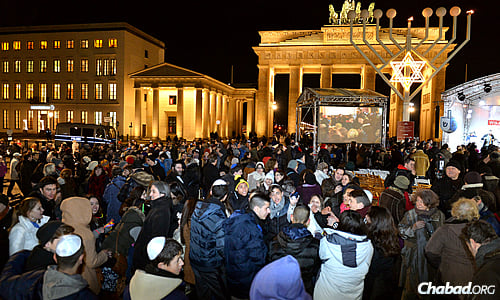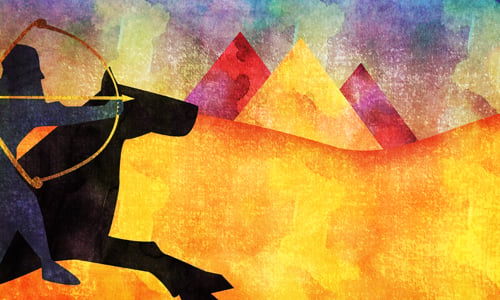Question:
My friend told me that Chanukah is a minor holiday, unlike Rosh Hashanah and Passover, and so we shouldn’t make such a big deal out of it. He said that the only reason it became so big was because of the season.
Answer:
It may seem that way, but only for one reason: Unlike Rosh Hashanah, Passover and other holidays, which are Biblically prescribed days of rest, we go to work on Chanukah. Even on Purim, going to work is not recommended, yet on Chanukah, no problem.
Alright, then there’s the clothes. On Jewish holidays we wear special clothes. But the days of Chanukah are regular workdays in regular clothes.
But other than that it’s difficult to call Chanukah a minor holiday. For one thing, read what Maimonides writes in his Laws of Chanukah:
The mitzvah of kindling Chanukah lamps is a very precious mitzvah. A person should be very careful in its observance, to publicize the miracle and thus increase our praise of G‑d and our expression of thanks for the miracles which He wrought on our behalf. Even if a person has no resources for food except what he receives from charity, he should pawn or sell his garments and purchase oil and lamps to kindle them.
Maimonides continues by instructing that if one has only enough money to afford either a cup of wine for Shabbat kiddush or oil for his Chanukah lamp, the mitzvah of Chanukah takes precedence. Doesn’t sound too minor to me.
Some have suggested that Chanukah gained popularity in reaction to the sensory bombardment provided by the majority culture’s holiday. If anything, it would be more accurate to say that Chanukah may have retained it’s popularity due to it’s position on the calendar.
Nevertheless, it’s unclear what makes this lamentable. Indeed, it sounds like a very good strategy: If a big fish is swallowing you alive, thrash about and make a lot of noise!
Truth be told, Chanukah did make a small retreat for quite a few centuries. Originally, everyone lit their Chanukah lights at the entrance to their homes. When Jews lived among people hostile to their faith, they had to bring that light indoors, out of fear for their lives.
In the 1970s, however, the Rebbe, Rabbi Menachem M. Schneerson, of righteous memory, began a campaign of lighting prominent, highly visible Chanukah menorahs in public places. Since then, in shopping malls and town squares wherever there are Jews, Chanukah has once again become a very open, public celebration.
This is really what Chanukah is all about: to “light up the darkness” (which is why we light it at night, at the door or window). So, even though it’s a regular workday—well, that’s really the whole idea: to light up the regular workday. And that takes a very special light.
At any rate, since when do we look for excuses not to celebrate? On the contrary, in the words of wise King Solomon, “A good heart always celebrates.”

